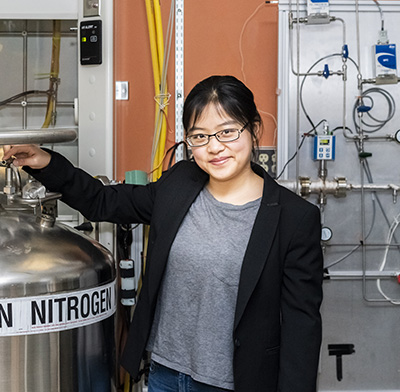Campus News
Postdoctoral fellowship supports planetary science research
The 51 Pegasi b Fellowship will fund Xinting Yu’s research at UC Santa Cruz on formation of clouds and hazes on exoplanets.

Xinting Yu, at Johns Hopkins University
The Heising-Simons Foundation has awarded a 51 Pegasi b Fellowship to Xinting Yu to support her postdoctoral research in planetary sciences at UC Santa Cruz starting in fall 2019.
Established in 2017, the Heising-Simons Foundation 51 Pegasi b Fellowship is named for the first exoplanet discovered orbiting a sun-like star. The fellowship provides up to $375,000 of support for independent research over three years, as well as other benefits including an annual summit to develop professional networks, exchange information and ideas, and foster collaboration.
In her research at UC Santa Cruz, Yu plans to explore how clouds, hazes, fog, dust, and other matter interact with different wavelengths of light, and how these relationships impact the signals we receive from exoplanets.
Yu said she is intrigued by the abundant “super-Earths” and “mini-Neptunes” detected by the Kepler space mission. Since these exoplanets are completely unlike anything found in our own solar system, uncovering new information can contribute to a greater understanding of a large and diverse class of objects in the galaxy. As an experimentalist, she aims to generate a more realistic portrait of these exoplanets by expanding upon her research on Titan, Saturn’s largest moon, and reproducing organic particles in exoplanet atmospheres through lab simulations.
“My goal is to create more self-consistent models of clouds and hazes so we can get realistic simulations of what’s happening on exoplanets,” said Yu, who is currently completing her Ph.D. in planetary science at Johns Hopkins University.